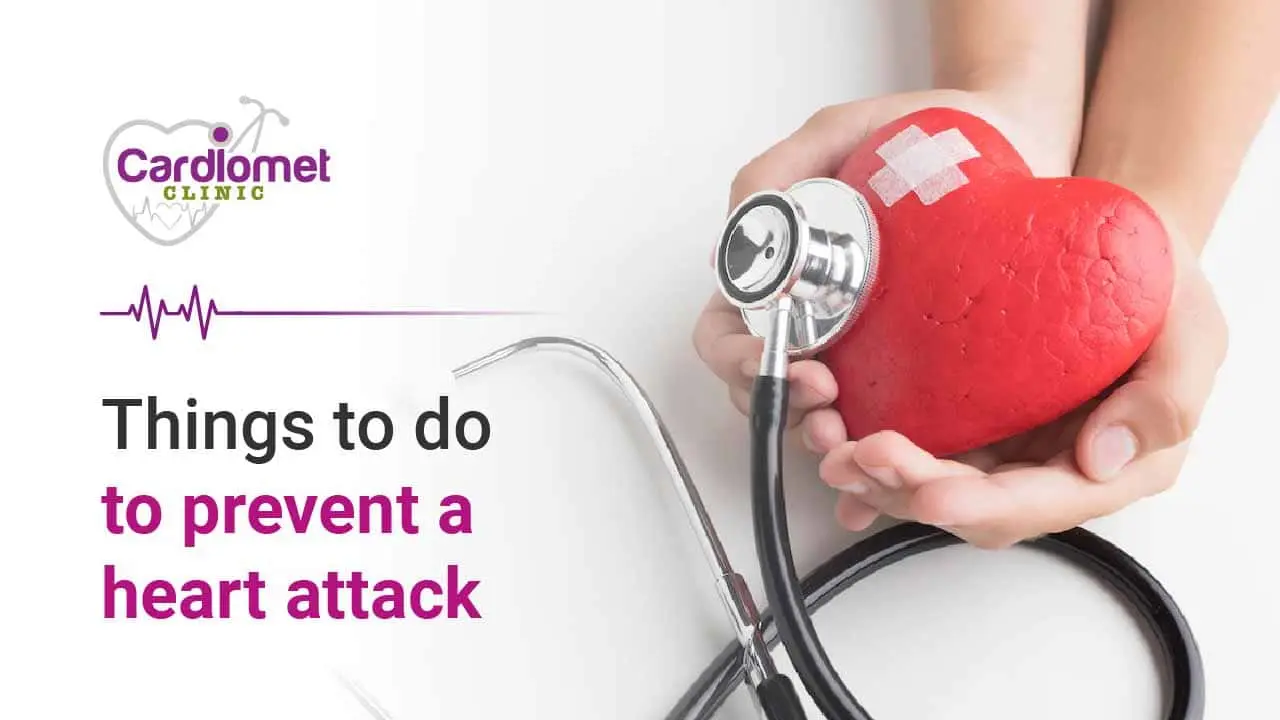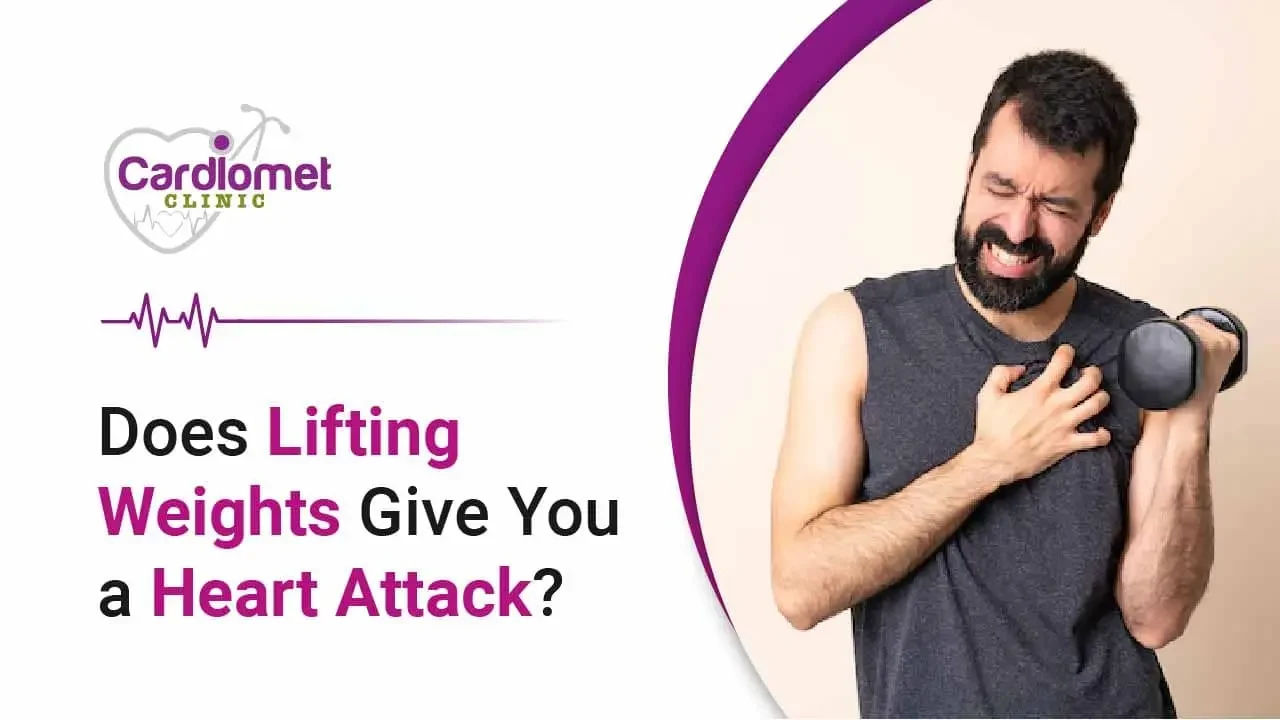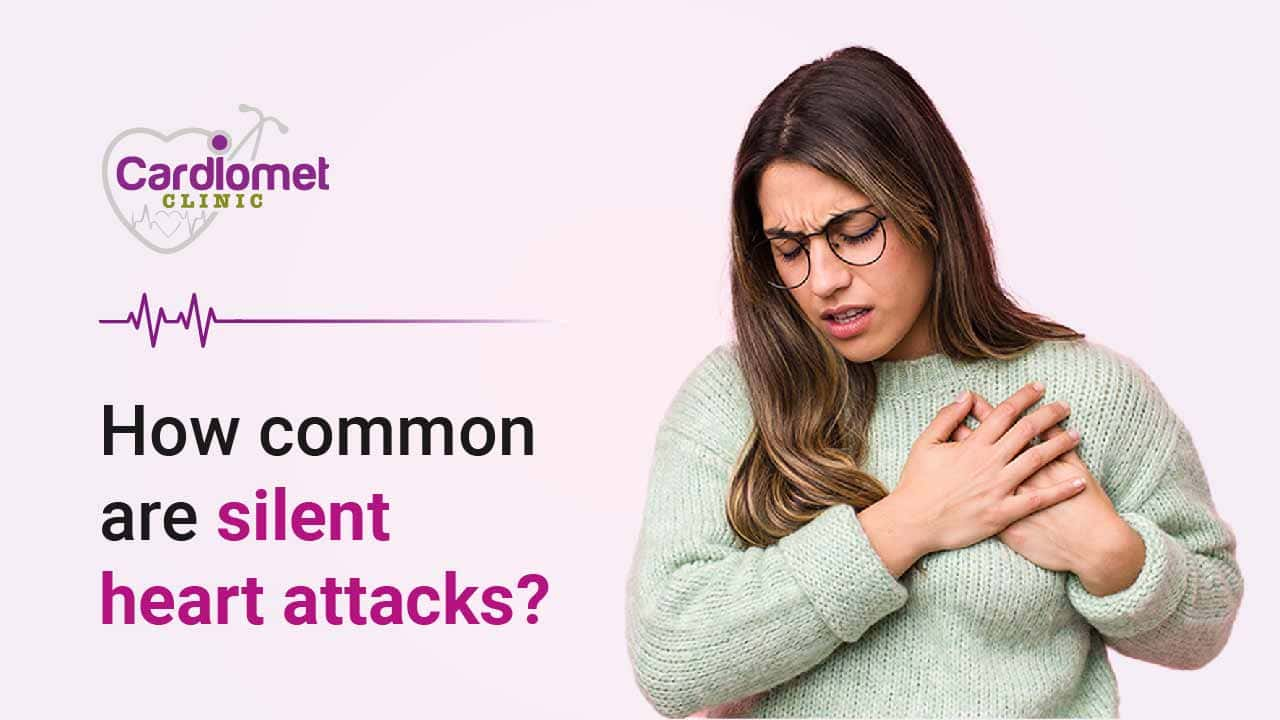8 Things to do to Prevent a Heart Attack
Are you wondering how to prevent a heart attack?
As a cardiologist and longtime researcher in the field of cardiology, I want to share with you some of the most important steps that can help decrease your chances of having one.

Empower your cardiovascular health by adopting proactive measures to lower the risk of heart attacks. Prioritize a wholesome lifestyle with healthy eating and regular exercise. Understanding your family history and identifying risk factors is crucial.
Be vigilant and act swiftly if symptoms emerge, For expert guidance, consult Dr. Abhijeet Palshikar at Cardiomet, recognized as the foremost heart surgeon in Pune. Your heart's well-being is in capable hands.
In this blog post, I'm going to go over seven key things you can do now that will keep you healthier and happier in the Future!

1. Maintain a Healthy Weight :
Carrying too much extra weight can Increase Your Risk of a Heart Attack and other health problems. Obesity is a major Risk Factor for Heart Attack. Being overweight or obese increases your risk of developing cardiovascular diseases such as high blood pressure, stroke, and coronary artery disease, which can lead to a heart attack.

Obesity also makes the body produce higher levels of certain hormones that cause inflammation in the arteries, leading to an increased formation of fatty deposits (Atherosclerosis), which can block the arteries.
This can lead to a heart attack if a clot forms and blocks off the artery supplying oxygen to the heart muscle. Keeping a healthy body, developing balanced eating habits, and exercising regularly are important steps you can take to reduce your risk of developing heart disease and having a heart attack.
2. Avoid Smoking:
Smoking is one of the most preventable causes of death and disease in the world. It is also one of the top risk factors for heart attack. The chemicals in cigarettes cause damage to the inner lining of arteries, leading to a buildup of fatty material called plaque, which can block blood flow to the heart muscle.

Smoking also increases your risk of developing blood clots, further increasing the chances of a heart attack. Quitting smoking is essential to reducing your risk of having a heart attack or any other cardiovascular complications
3. Lower Stress Levels :
Mental stress can have a significant impact on coronary Heart Disease. Studies have shown that people who are chronically stressed are more likely to Develop Conditions Such as Hypertension, which can Lead to a Heart Attack.

Elevate your heart health journey with insights from the visionary Dr. Abhijeet Palshikar at Cardiomet, the Best Cardiologist in Pune. Discover the transformative impact of stress on inflammatory hormones, as Dr. Abhijeet Palshikar Guides you Towards Informed choices, safeguarding against Artery plaque buildup and the looming specter of blood clotting.
Reducing stress levels through meditation, yoga, and other relaxation techniques can help protect against Coronary Heart Disease and Reduce the Risk of a Heart Attack.
4. Reduce Cholesterol Levels : Reduce the Risk of a Heart Attack.
High cholesterol can lead to Fatty Deposits in the Arteries, making blood clots more likely. Eating healthy fats, exercising regularly and taking medication if necessary are great ways to reduce your risk by lowering your cholesterol
5. Manage Diabetes :
If you have been diagnosed with diabetes, it's important to take steps to control it and prevent further complications. Diabetes is a major risk factor for heart attacks and other cardiovascular diseases.
People with diabetes have an increased chance of developing high blood pressure, Coronary Artery Disease, Stroke,and other conditions that can lead to a Heart Attack. Diabetes also Causes changes in the body’s chemistry that make it easier for fatty deposits to form in the arteries.
Maintaining a healthy lifestyle and closely monitoring your blood sugar levels are important steps to reducing your Risk of developing diabetes-related heart conditions.
This includes following a healthy diet, measuring your blood sugar regularly, and exercising as recommended by your healthcare provider.
6. Know Your Family History :
A family history of heart attack is an important risk factor to consider, as it increases your likelihood of developing cardiovascular diseases and having a heart attack.
People who have close relatives with coronary artery disease are more likely to develop the same condition due to a combination of genetic and lifestyle factors. Understanding any cardiac issues in your family tree will help you better assess your own personal risk factors.
If you have a family history of heart attacks, it’s important to make healthy lifestyle changes and maintain a healthy weight to reduce your risk.
7. Be Aware of Warning Signs :
If you experience any chest pain, shortness of breath, dizziness, or nausea, seek medical care immediately. Early diagnosis and treatment are the best ways to prevent a heart attack, so don't be afraid to act quickly when it comes to your health!
8. Physical Inactivity Can Increase the Risk of Heart Attack
Physical inactivity is a major contributor to coronary heart disease and increases the Risk of having a heart attack. People who don’t exercise regularly have higher levels of cholesterol and triglycerides in their blood, which can lead to an increased formation of fatty deposits in the arteries.
Regular Physical Activity Helps to lower Blood Pressure, reduce inflammation in the Body, and Improve Overall cardiovascular health. Engaging in regular aerobic exercise is essential for reducing your Risk of a Heart attack.
By following these 8 steps, you can take control of your cardiovascular health and decrease your chances of having a heart attack in the future.
Make sure that you discuss any changes with your doctor before making them, as they may have certain recommendations tailored specifically for you and your unique situation.
Taking proactive steps now will help ensure that you stay healthier for longer! Remember that prevention is key when it comes to heart attacks and other cardiovascular diseases, so don't be afraid to take action and start making the necessary lifestyle changes today! Good luck on your journey towards improved health. Stay safe! Be well!



